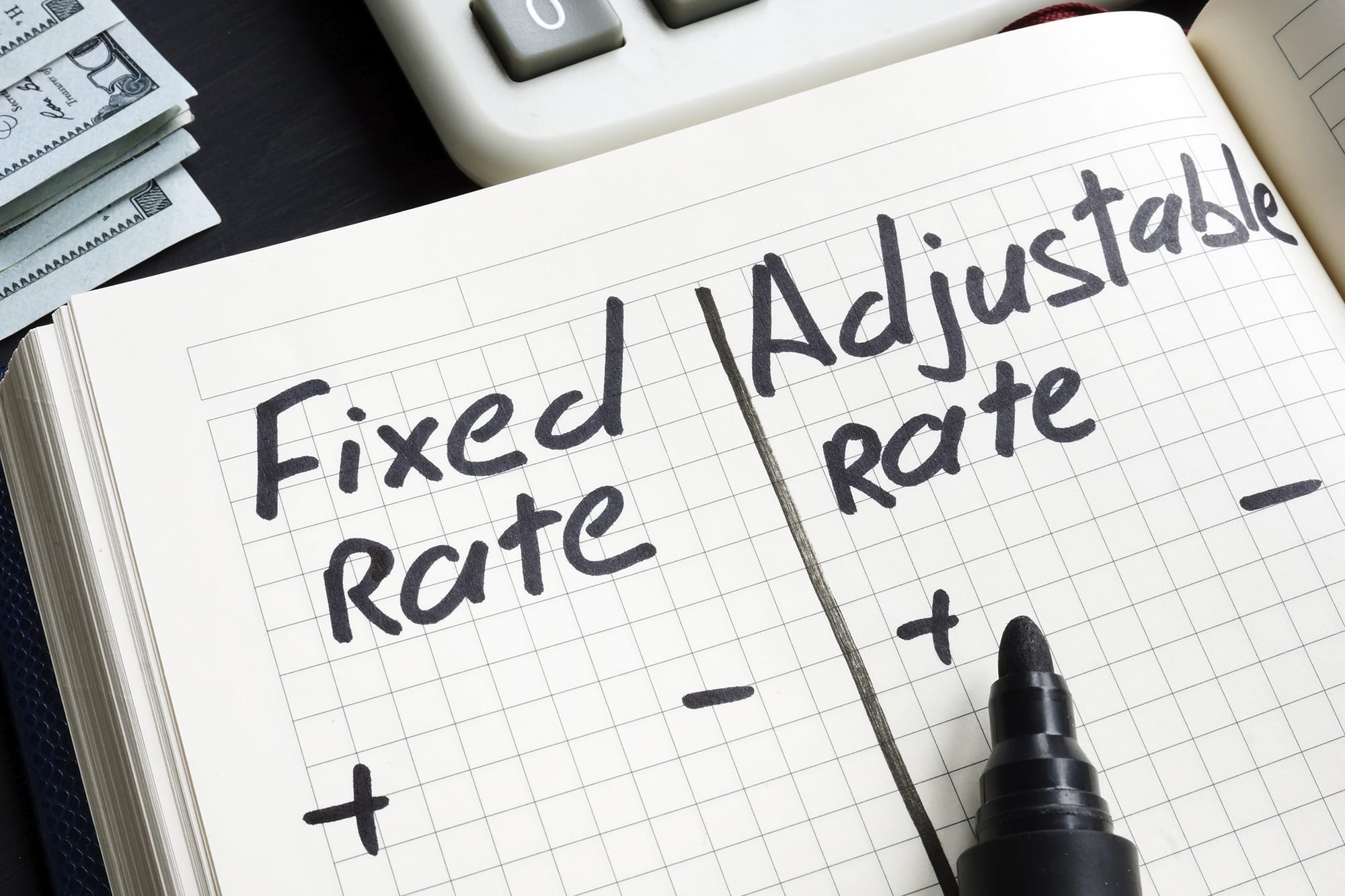Are you a physician looking for a new home? If you already know about the advantages to physician mortgages you’re off to a good start. But another decision you’ll need to make centers around the rate. Is a fixed-rate mortgage or adjustable-rate mortgage better? As you might have guessed there are advantages and disadvantages to both. Depending on your unique situation, one will make more sense for you. In this article, we’ll take a closer look at both types of mortgages to help you better understand which one might be the best choice for you.
What is a Fixed Rate Mortgage Loan?
A fixed-rate loan is a type of home loan that keeps the same interest rate for the entire life of the loan. Most fixed-rate loans come in 15 or 30-year options.
What are the Benefits of a Fixed Rate Mortgage?
The first advantage is a certainty. Because the interest rate on a fixed-rate mortgage stays the same for the entire life or “term” of the loan, it will never increase or decrease. It takes a lot of guesswork and surprises out of your financial planning.
If you lock in a 3 percent interest rate at closing, you will only pay 3 percent each year until the loan is paid off. The long-term stability and predictability fixed-rate mortgages provide give many buyers peace of mind moving forward. Being protected from rising rates when the economy is growing is a big relief for individuals wanting to minimize risk.
Disadvantages of a Fixed Rate Mortgage
Fixed-rate mortgages usually have higher interest rates compared to adjustable-rate mortgages. The lender takes on more risk with a fixed-rate mortgage if the interest rates rise in the future. Because of this risk, you pay extra for guaranteed stability over the life of the loan.
When Does a Fixed-Rate Mortgage Make Sense?
If you’re planning to stay in a home for an extended period of time – 10 years or more – the advantages of a fixed-rate mortgage outweigh the higher interest costs. If you’re thinking of moving or selling in less than 10 years you might consider an adjustable-rate mortgage.
What is an Adjustable Rate Mortgage?
The interest on an adjustable-rate mortgage (ARM) is not fixed for the life of the loan. It can and likely will change over time. Many times, the interest on an adjustable-rate loan may be fixed for the first five to seven years before adjusting to match current market mortgage rates.
What are the Benefits of an ARM Loan?
Borrowers who choose adjustable mortgages can secure a lower interest rate and save more in the short term. There are also caps on some ARM loans, on how much the interest can increase or decrease, which takes some of the risk out.
Disadvantages of ARM Mortgages
- Rates can increase over time.
- Even with a rate cap, it makes it more difficult to keep household mortgage budgeting stable.
When Does an Adjustable-Rate Mortgage Make Sense?
There are three scenarios where going with an adjustable-rate mortgage makes sense.
- You’re buying when mortgage rates are high.
- You don’t plan on staying in the home beyond the ARM term.
- You want to pay down your principal faster.










